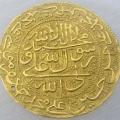172 - All Things Considered: Abū l-Barakāt al-Baghdādī
Posted on
Abū l-Barakāt al-Baghdādī makes up his own mind about physics and the soul, and along the way inaugurates a new style of doing philosophy.
Themes:
Further Reading
• P. Adamson (ed.), In the Age of Averroes: Arabic Philosophy in the Sixth/Twelfth Century (London: 2011).
• R. Arnaldez, “La Doctrine de l’âme dans la philosophie d’Abū l-Barakāt al-Baghdādī,” Studia Islamica 66 (1987), 102-12.
• J. Kaukua, “Self, Agent, Soul: Abū l-Barakāt al-Baghdādī’s Critical Reception of Avicennian Psychology,” in J. Kaukua and T. Ekenberg (eds), Subjectivity and Selfhood in Medieval and Early Modern Philosophy (Cham: 2016), 75-89.
• S. Pines, Studies in Abu’l-Barakāt al-Baghdādī: Physics and Metaphysics (Jerusalem: 1979).







Comments
Intro tune
Great programme! What's the intro tune? digging it.
In reply to Intro tune by mikko
Intro music
Oh right, I forgot to post that under Links. I've done it now, thanks for reminding me. Anyway it is from the album Spendors of Topkapi by the Bezmara Ensemble.
In reply to Intro music by Peter Adamson
Splendours
Thanks! The puns are painful but soul-soothing music makes them bearable. :)
Phantom limbs
Hi Peter,
just a question about Abū l-Barakāt. You indicated that he was a physician, and I would therefore assume that he would be aware of a phenomenon known as Phantom Limbs, which has been known about since ancient times.
This occurs in amputees and others who have lost limbs or hands or feet. There is a sensation of feeling the limbs, and in some cases needing to stretch the limb or having the sensation of a clenched fist. These days we have a sophisticated neuro-physiological explanation for this phenomenon.
Did this play any part in Abū l-Barakāt's argument about the unity of the soul? I am thinking in particular of the observation that our souls are not diminished if we lose a limb. Or does this not appear in the literature?
In reply to Phantom limbs by Bear
Phantom limbs
That's a great question! Unfortunately, though I can think of numerous places where philosophers discuss issues of identity over time involving amputation (the Stoics, Plotinus, and of course Abu l-Barakat) I can't think of anyone who talks about the phantom limb phenomenon. It would be great to hear of an example though.
In reply to Phantom limbs by Peter Adamson
Phantom Limbs
I'm not aware of any such instances in Ancient or Medieval Philosophy, but in more recent times, Merleau-Ponty devotes in his Phenomenology of Perception a lengthy examination of the phenomenon and its relation to our embodied experience of the world, our being-in-the-world.
Arabic Physics
Hi Peter, I'm intrigued by how thinkers in the Arabic world were criticising and extending Aristotelian physics. In particular Crescas on infinity, and your discussion in this episode of Avicenna and al-Baghdādī's theories of motion. Are there any good resources for the non-specialist on Arabic physics?
In reply to Arabic Physics by JDF
Arabic natural philosophy
I would start with this overview on the Stanford Encyclopedia, which has extensive bibliography at the end also:
http://plato.stanford.edu/entries/arabic-islamic-natural/
Energy
Applause for Abu-Barakat for his explanation closest to modern theory of potential and kinetic energy. btw. I was wondering if there is any evidence he could read or read Hebrew philosophical sources himself?
In reply to Energy by Xaratustra
Hebrew sources
No, not as far as I know - I believe he is thought to have worked only with Arabic philosophical sources. On the other hand if he was raised Jewish he should have been able to read some Hebrew, so you never know. Bear in mind though that the closest analogy in the Jewish tradition is Crescas, who is significantly later so certainly not a part of the background for Abu l-Barakat.
In reply to Energy by Xaratustra
Sources?
Interesting, I did not know about this. Do you have any sources which explain his theory of motion that is similar to potential and kinetic energy? I'd be very interested in reading about it. Does he use any mathematics and geometry to describe motion in this framework?
In reply to Sources? by qw rq
Baghdadi on motion
It's covered in the book by Pines mentioned above. He actually doesn't use mathematical models to set out the theory, unless I am misremembering.
I had to go back to "Shlomo…
I had to go back to "Shlomo Pines" to double-take that pronunciation...
I appreciate how I've taken a long break from this podcast but thought of the flying man right before you mentioned it. Some of those mental images really stick with you, which I guess is the power of thought experiments in general.
Hearing the examples for well-known scientific principles is a neat example of how relatively recent the distinctions between the disciplines are, but also make me a lot more skeptical about the philosophical ideas themselves. You can't just take them at face value as "well, that seems reasonable, I guess" because, without having taken Physics, I would be thinking the same thing about the rocks.
Al-Baghdadi and Model Theory
Hey there!
Doing some further research on Abu Al-Barakat Al-Baghdadi, I've found logician who claims that Al-Baghdadi was one of the first, if not the first, to deploy a kind of model theory in his Kitab al-Mu'tabar! The author, the logician Wilfred Hodges, claims in https://link.springer.com/article/10.1007/s11787-018-0187-6 that Al-Baghdadi deploys a method similar to Liebniz's models of Aristotelian categorical logic, and further, deploys in them in a way that we might now do whenever we construct a model theory.
What struck me at first glance, though it was entirely superficial it turns out, was the similarity between Al-Baghdadi's models and Gentzen sequents. However, they are very, very different in aim.
Thanks so much,
CH
Add new comment